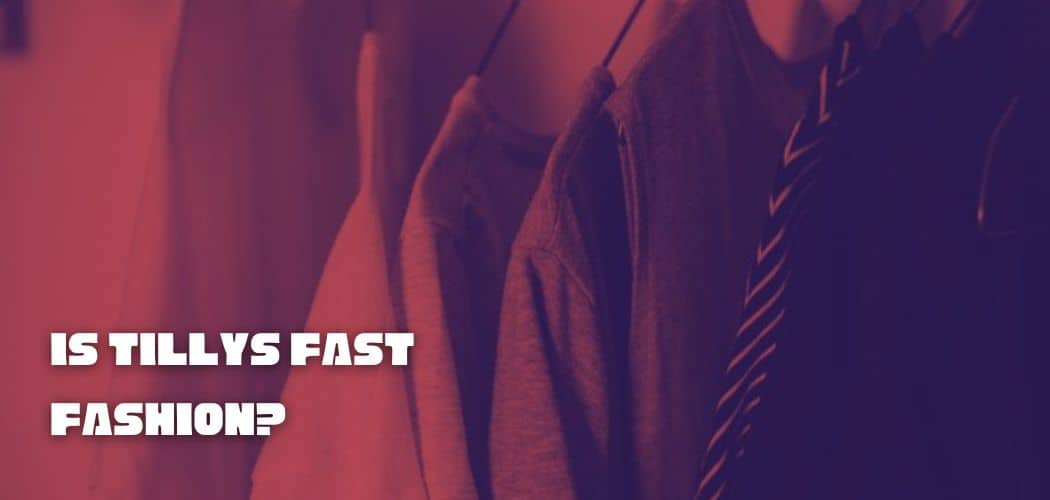Many people love to boast about how reasonable their cute top is or how many articles they bought for just a hundred bucks, but these people fail to realize the actual cost of their clothes.
Cheap clothes mean low-quality fabrics, unfair wages, and a lot of environmental pollution.
Unfortunately, not many people know this ugly truth, and there is a never-ending demand for stylish, inexpensive clothes.
This increasing demand has given rise to fast-fashion brands that aim to make trendy clothes available to people at low costs.
In order to make maximum profit from clothes, fast fashion brands use hazardous fabrics and dyes.
Their primary fabrics are petroleum-based synthetic materials like Polyester and Rayon. People who often wear clothes made with these fabrics are more prone to developing skin conditions like eczema and psoriasis.
On every wash, they release plastic microfiber that pollutes the ocean, killing underwater plants and fish. Once discarded, they end up in landfills where they rot for decades.
The water and energy sources that are utilized for the production of these clothes are tremendous. Our world is already running out of these resources, and wasting them on insignificant things like clothes is not worth it.
Lastly, fast fashion brands set up factories in third-world countries and exploit the laborers.

The factory workers face everything from unsafe workplaces and undrinkable water to low wages and excessive working hours. Many fast fashion brands even employ young kids to work for them.
To stop these unethical practices, we need to know which brands sell fast fashion and ban them for good.
Tillys is an American retail store opened by a navy officer and his wife in 1984. Today, the company sells everything from clothes for men, women, and children to jewelry, shoes, and other accessories. Many big names have their collections in Tillys’ stores and online.
Since people love to see so many brands under one roof, Tillys’ has gathered numerous loyal customers across the United States. The company is only growing with over two hundred stores nationwide.
One concern that people have is whether Tillys sells fast fashion clothes. To figure that out, we researched the company and made some discoveries. Let’s take a look, shall we?
Whether Tillys is fast-fashion or not depends on all the brands it houses. With more than two hundred labels under its roof, it is probably hard for Tillys to determine which brand is fast fashion and which isn’t.
Tillys does not have any code of conduct that all its supplier brands must sign. Neither does the store has any policies assuring that it cares about the well-being of those working in the supply chain.
The store does have a section on its website called “Sustainability Matters.” In this section, Tillys very vaguely explains how crucial sustainability is and how much the company cares about the planet.
Impressive, bold headings like “Recycled Polyester,” “Recycled Cotton,” “Recycled Nylon,” and “Organic Cotton” make Tilly sound like a responsible company. But when you read the content inside these headings, you realize that it’s all bogus.
The store claims that it urges its partner brands to take environmental pollution seriously and use more recycled polyester, cotton, and nylon in their clothes. It does not, however, specify how many of those brands are making actual efforts to protect nature.
After seeing Tillys’ bogus sustainability page, we decided to look at the brands it sells. Some of those are Nike, Urban Outfitters, Crocs, Adidas, and Levi’s.
All these have a poor reputation for being fast fashion brands. Most of the clothes they produce are made with inorganic cotton or synthetic fabrics like rayon and polyester. Their supply chains are not transparent, and most of them have factories in third-world countries.
If we talk about the clothing range and prices, it’s no surprise that Tillys has every style you will ask for. From cute t-shirts to date night dresses, Tillys has it all covered.
As far as the prices are concerned, we were shocked to see that the store offers you four trendy tops for only twenty-five dollars. And we are not talking about just one of two styles. You can swipe forever, but the styles will not end, and you’ll definitely find something to waste your twenty-five bucks on.
Cheap, trendy clothes are a major giveaway for fast fashion brands. No ethical brand can sell such inexpensive clothes because they use high-quality fabrics, audit their supply chain, and ensure the well-being of the laborers.
Since Tillys offers such cheap clothes and has some of the most popular fast fashion brands under its roof, it is safe to say that Tillys is fast fashion.
IS TILLYS ETHICAL?
Tillys’ website has a sustainability page that has bogus information on it. The retailer claims that it encourages its brand partners to use recycled polyester, cotton, and rayon, but there is information about how seriously the brands take Tillys’ advice.
The store does not have any supplier’s code of conduct that all brands must follow. This means Tillys may sell brands that employ children, forced labor or make needy people work in sweatshops for minimum wages.

Tillys sells cheap clothes and has offers like, “Buy 4 tops for $25.” These clothes are of poor quality and wear out after one or two washes. The result is more non-biodegradable fabrics in landfills. Such low costs also mean that they are made by laborers working in miserable conditions, below minimum wages.
Tillys also houses some of the most popular fast fashion brands that have come under fire for forced labor, sweatshops, and much more.
All this proves that Tillys is not an ethical brand, and we must avoid it.
WHERE DOES TILLYS GET ITS CLOTHES FROM?
Tilly is a retail store similar to Macy’s and stocks clothes of different brands.

Some conspicuous names are Nike, Levi’s, Van, Croc, etc. You can find hundreds of labels in Tillys’ stores.
So it is safe to say that Tillys gets its clothes from all the designers it sells.

